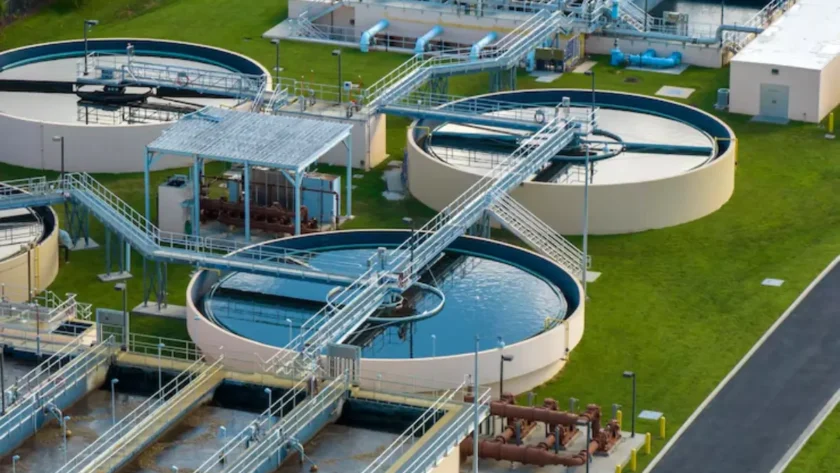As environmental concerns and urban populations grow, the demand for more effective and sustainable wastewater management has never been more urgent. Traditional treatment systems, while foundational, often fall short in addressing today’s complex water quality challenges. In response, engineers and scientists are exploring inventive solutions beyond conventional methods.
These new strategies prioritize efficiency, environmental protection, and resource recovery from biological filtration systems to membrane technologies and decentralized treatment models. This shift reflects a broader commitment to innovation to safeguard public health while minimizing ecological impact. As technologies evolve, so too does our ability to meet the demands of modern water infrastructure.
Contents
The Importance of Efficient Wastewater Management
In today’s world, efficient wastewater management is more crucial than ever. As populations grow, so does the amount of wastewater generated. Without proper management, this poses a significant threat to human health and the environment. Efficient systems help to purify water, removing contaminants and pathogens that can lead to disease outbreaks and environmental degradation.
Recent innovations like distributed wastewater treatment systems play an essential part in addressing these challenges, offering flexible solutions that can be tailored to meet various regional requirements. These systems provide greater flexibility than conventional approaches, effectively allowing communities to manage their wastewater regardless of size or location.
Traditional Wastewater Treatment Processes
The conventional method serves as the foundation for most wastewater treatment plants. This approach generally incorporates mechanical and biological processes to eliminate solids, organic materials, and nutrients from wastewater. Initial stages, often called primary treatment, include screening and sedimentation that physically separate large particles from the water.
Following this, secondary treatment employs microbial activity to degrade organic matter biologically. Although time-tested, these methods are not without their limitations. They often require significant energy inputs and can be less effective in treating certain modern pollutants. However, they remain integral to wastewater operations worldwide, as their effectiveness in managing large volumes of water is well-proven.
Emergent Technologies in Wastewater Treatment
Emerging technologies in wastewater treatment are reshaping how communities and industries manage water sustainability and public health. Innovations such as membrane bioreactors, advanced oxidation processes, and real-time monitoring systems are making treatment more efficient and adaptable to growing environmental demands. These advancements improve the removal of contaminants and support the reuse of treated water in agricultural and industrial settings.
As infrastructure requirements change, a commercial septic company is essential in practically applying these technologies, connecting innovative research with real-world use. By combining contemporary systems with conventional treatment methods, these companies guarantee adherence to regulations, minimize environmental effects, and support the larger objective of sustainable water management in metropolitan and countryside areas.
Distributed Sewage Treatment Approaches
Distributed systems are an innovative solution where centralized systems are impractical or too costly. By breaking down treatment into smaller, localized units, they offer a practical solution for communities lacking access to large-scale infrastructure. These systems are particularly beneficial in suburban and rural settings where space and budget constraints limit traditional approaches.
The flexibility and scalability of distributed systems make them an ideal option, as they can be adjusted to handle various capacities and contaminant loads. This adaptability is increasingly vital as population dynamics shift and environmental regulations evolve, demanding more sophisticated and responsive approaches.
Innovative Developments in the Industry
Recent technological advancements have profoundly changed how wastewater treatment facilities operate. The marriage of digital technology and environmental management has seen the development of smart monitoring systems. These systems employ sensors and Internet of Things (IoT) connectivity to provide real-time data on water quality, flow rates, and system integrity.
These technologies help reduce downtime and prevent pollution events by detecting anomalies quickly. Furthermore, data analytics can optimize treatment processes, reduce operational costs, and better comply with regulatory requirements.
Natural Treatment Solutions
Numerous facilities are investigating natural treatment methods as a sustainable substitute for conventional practices. Natural alternatives such as constructed wetlands and bioreactors employ plants and microorganisms to decompose pollutants naturally.
These systems leverage the inherent capabilities of ecosystems to cleanse and detoxify water efficiently. They reduce the need for chemical treatments and lower energy consumption, making them cost-effective and environmentally friendly. Additionally, these systems can serve as valuable habitats for wildlife, further enhancing their ecological benefits.
Sustainability and Future Trends
The wastewater treatment industry is gradually incorporating sustainable practices. Many facilities are investing in renewable energy options, such as solar energy systems and biogas generators, to power their operations. These initiatives help to minimize the carbon footprint of wastewater treatment facilities.
Another promising trend is water reuse; treated wastewater is now being reclaimed and repurposed for agricultural or industrial uses. Such practices foster water conservation and reduce the pressure on freshwater resources, which is vital in a world where water scarcity is becoming more prevalent.




